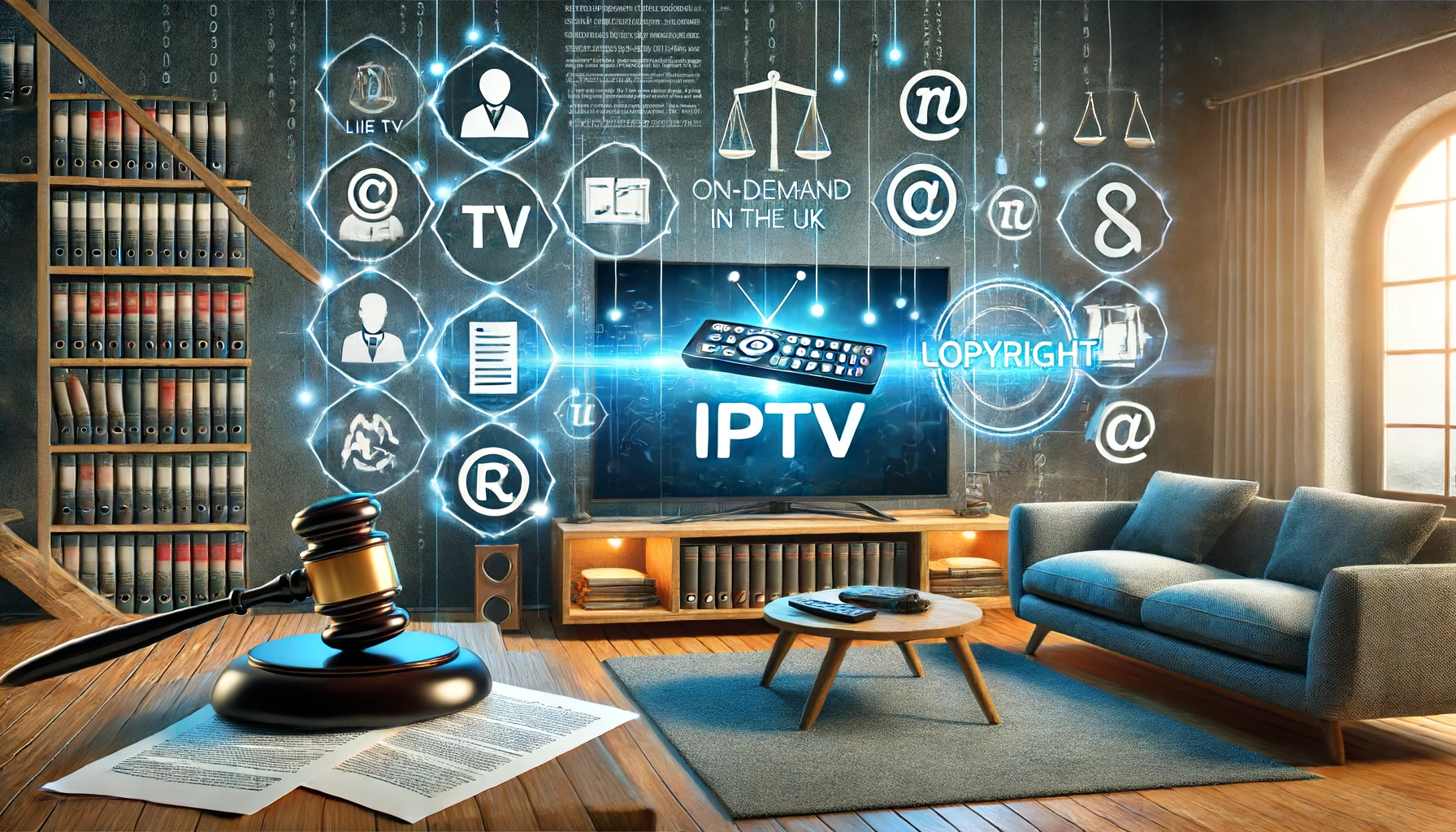Understanding IPTV Legalities in the UK
Table of Contents
- Introduction
- What is IPTV?
- Legal Framework for IPTV in the UK
- Copyright and Licensing Issues in IPTV
- Risks of Using Illegal IPTV Services
- How to Identify Legal IPTV Services
- Penalties for Using Illegal IPTV Services
- Case Studies and Examples
- Best Practices for Safe IPTV Use
- Conclusion
Introduction
Internet Protocol Television (IPTV) has surged in popularity as an alternative to traditional cable and satellite TV services. However, with its rise, legal questions and concerns have also emerged. This comprehensive guide will explore the legalities of IPTV in the UK, including the legal framework, copyright issues, risks, and how to identify legal services. Understanding these aspects is crucial for users to avoid legal repercussions and enjoy IPTV services safely.
What is IPTV?
IPTV, or Internet Protocol Television, is a digital television broadcasting technology that delivers TV content over the internet. Unlike traditional TV services, which use terrestrial, satellite, or cable formats, IPTV transmits TV signals via the internet, allowing users to stream live TV channels and on-demand content on various devices.
Legal Framework for IPTV in the UK
The legal framework for IPTV in the UK is complex and involves various laws and regulations aimed at protecting copyright and ensuring fair use. The primary legislation governing IPTV includes:
- Copyright, Designs and Patents Act 1988: This act protects the rights of creators and owners of copyrighted content. It makes it illegal to stream or distribute copyrighted material without proper authorization.
- Digital Economy Act 2017: This act includes provisions to combat online piracy and illegal streaming. It empowers authorities to take action against illegal IPTV services and websites.
Copyright and Licensing Issues in IPTV
One of the critical legal aspects of IPTV is copyright and licensing. IPTV services must obtain proper licenses from content creators and broadcasters to legally stream TV channels and on-demand content. Here are some key points to understand:
- Licensing Agreements: Legal IPTV providers must enter into licensing agreements with content owners to stream their material. These agreements ensure that content creators are compensated for their work.
- Unauthorized Streaming: Streaming or distributing copyrighted content without authorization is illegal and constitutes copyright infringement. Users should be cautious and avoid services that do not have proper licensing.
Risks of Using Illegal IPTV Services
Using illegal IPTV services poses several risks, including:
- Legal Consequences: Accessing or distributing illegal IPTV streams can result in legal action, fines, and even imprisonment.
- Security Threats: Illegal IPTV services often lack proper security measures, exposing users to malware, phishing attacks, and data breaches.
- Unreliable Service: Illegal IPTV providers may not offer reliable streaming quality, customer support, or service continuity.
How to Identify Legal IPTV Services
Identifying legal IPTV services is crucial to avoid legal issues and ensure a safe viewing experience. Here are some tips to help:
- Check Licensing Information: Legal IPTV providers will usually display licensing information on their websites or service documentation.
- Research Provider Reputation: Look for reviews and feedback from other users to gauge the legitimacy of the IPTV service.
- Avoid Too-Good-To-Be-True Offers: Be wary of services offering an extensive range of channels at unusually low prices, as these are often illegal.
Penalties for Using Illegal IPTV Services
The penalties for using illegal IPTV services in the UK can be severe. They include:
- Fines: Individuals caught using illegal IPTV services can face substantial fines.
- Imprisonment: In serious cases, users and providers of illegal IPTV services can face imprisonment.
- Civil Lawsuits: Content owners may also file civil lawsuits against individuals and companies involved in illegal streaming.
Case Studies and Examples
Case Study 1: Operation Creative
Operation Creative is an initiative by the UK’s Police Intellectual Property Crime Unit (PIPCU) to combat online piracy. It targets websites and services offering illegal IPTV streams and takes action to shut them down. The operation has successfully closed numerous illegal IPTV services and prosecuted their operators.
Case Study 2: Football Streaming Crackdown
The Premier League has been active in combating illegal IPTV streaming of football matches. They have obtained court orders to block illegal streams and have pursued legal action against individuals and companies involved in distributing unauthorized content.
Best Practices for Safe IPTV Use
To ensure a safe and legal IPTV experience, follow these best practices:
- Use Reputable Providers: Only subscribe to IPTV services with proper licensing and a good reputation.
- Avoid Free IPTV Services: Free IPTV services are often illegal and pose security risks. Opt for paid services that are transparent about their licensing.
- Stay Informed: Keep up-to-date with the latest legal developments and guidelines related to IPTV use in the UK.
- Use Security Measures: Protect your devices with antivirus software and avoid sharing personal information with untrusted IPTV providers.
Conclusion
Understanding the legalities of IPTV in the UK is essential for avoiding legal repercussions and ensuring a safe viewing experience. By choosing reputable providers and following best practices, users can enjoy the benefits of IPTV without legal concerns. Learn about the legal aspects of using IPTV in the UK in our IPTV UK guide.

Recent Comments